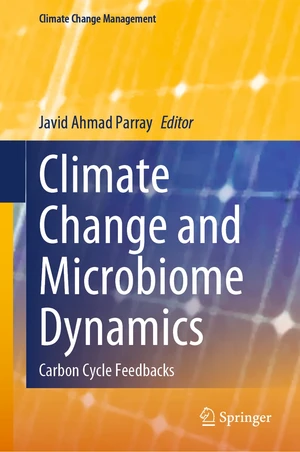The book provides an overview relevant to various biological mechanisms that regulate carbon exchanges between the major components and their response to climate change. Climate change has a significant impact on people's lives, energy demand, food security, etc. The soil microbial ecology is vital for assessing terrestrial and aquatic carbon cycles and climate feedback. However, the primary concern is the complexity of the soil microbial community and its severely affected functions due to the climate and other global changes. Global warming comprises an assessment of the dynamic interactions and feedback between microbes, plants, and their physical environment due to climate change. The book will address the need to use a multifactor experimental approach to understand how soil microorganisms and their activities adapt to climate change and the implications of carbon cycle feedback. The most pressing concern is a clearer understanding of the biological factors that regulate carbon exchanges between land, oceans, and the atmosphere and how these exchanges will respond to climate change via climateâecosystem feedbacks, which could augment or quell regional and global climate change. Terrestrial ecosystems play an important role in climate feedback as they produce and absorb greenhouse gases like carbon dioxide, methane, and nitrous oxides. They also strongly contribute to storing enormous amounts of carbon in living vegetation and soils, rendering them a significant global carbon sink. If climate change projections are realistic, such a rapid increase in carbon loss from soil could exacerbate the soil carbon cycle feedback. The book will determine the role of microbial feedback in regulating soil-land-atmosphere carbon exchange under changing climatic conditions at the regional and global levels. The current book will also focus on recent research designed to use beneficial microbes such as plant growth-promoting microorganisms, fungi, endophytic microbes, and others to improve understanding of the interaction and their potential role in promoting advanced management for sustainable agricultural solutions. Understanding the influence on the native microbiome, such as the distribution of methanogens and methanotrophs, nutritional content, microbial biomass, and other factors, is becoming increasingly crucial to establishing climate-resilient agriculture.
Price history
Jan 6, 2023
€135.12

